CHAPTER VII ~ TARZAN FINDS
A MATE
Joan spent this interim studying drama and singing. She went to one
of the best drama schools in Los Angeles. Many actors and actresses made
it in Hollywood after graduating from Marta Oatman's School, including
Lucille LeSueur, better known as Joan Crawford. Joan studied music under
Alexander Kisselberg. She had a good voice, took it very seriously, and
was happy studying under one of the best teachers in Los Angeles. She could
have gone to college, but chose the stage and singing instead.
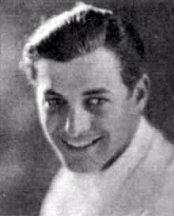
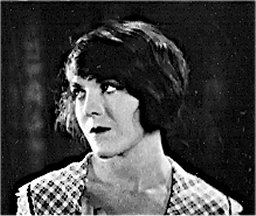
Rex Lease ~
Joan Burroughs Screen Test Photo
Joan had been going on dates as we had agreed. She had a very serious
case on an actor named Rex Lease while I was seeing Edna. Their romance
blew up just about the time Edna and I stopped dating. One of Joan's diaries
described the sad finale: "Rex called at 12:00 today. Said he would stop
by, had something to tell me. Called a little later. I drove over and met
him in front of the Hollywood Athletic Club. Told me that we couldn't see
each other anymore. Said he couldn't give me all the things that I'd been
used to and that he wasn't good enough for me, which is foolishness. He
made me feel very miserable."
"Friday, August 21. I feel worse than ever. Article came out in the
Los Angeles Times and Examiner that Rex and Charlotte Merriam are
engaged to be married. . . . I called Rex and he said it wasn't true,
but I don't know. Everybody's consoling me and telling me it is all for
the best. Maybe so! But it hearts. My first disillusionment. I wonder how
many more I'll have. He probably is glad to get rid of me. Oh what a dirty
trick. I hope he will be happier anyway. I'm going to miss him very much."
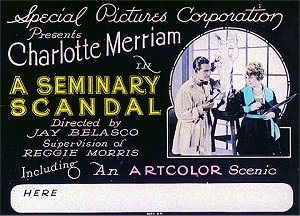
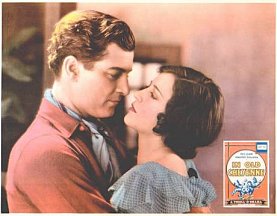
Rex had starred in quite a number of parts, but, like most successful
actors, he had an inflated ego. The girl he married was a fairly well-known
leading lady but lacked his stature as a star. Their marriage didn't last
long.
When I learned about the situation, I called Joan. We found that we
hadn't lost our feelings for each other. I was still in good graces with
her family, and she was now reaching the age of twenty. Once again, timing
and fate started working.
Joan kept up her training in both voice and acting, and had gotten several
professional jobs on the stage. She joined Actors' Equity for stage work
and the Screen Actors' Guild, and was registered as a singer for the musical
movies. She got to sing in most of the musicales because of her well-trained
voice, and it only took about two minutes for the director to approve her
when she took a test to join the singing guild.
Later, when Deanna Durbin reigned at Universal and Andrew Previn was
the musical director, he liked Joan's soprano voice and gave her a few
special spots in the Durbin films, such as Spring Parade.
She also played leads in some stock company community playhouses for
experience and got excellent notices, especially in Glendale where she
became a regular with the well-established Glendale Community Playhouse.
Director William Gould and his wife, Myrtle Pippin Gould, played character
parts in all the productions.
Joan took an apartment in Glendale, and was on her own as a professional
actress. She worked hard because the stock company played one show each
week while rehearsing for another.
I became stage-door Johnnie and saw every play -- sometimes more than
once. After the show, I drove Joan to her apartment after going out for
a late snack. She was a fiend for chili and spaghetti, despite the late
hour.
Her family and I were greatly concerned at her being out alone that
late at night, so I made it a point to be there when I was available, which
was most of the time. If I was out of town, I had one of my friends meet
her. During that period, there was a mad kidnap killer, named William
Hickman, loose in Los Angeles. This made us all the more concerned
for Joan's safety.
The stock company ran successfully for many months. A splendid actor
about fifty years old, Gould was spotted by a talent scout from Hollywood,
given a good role in a big picture, and became an immediate success. He
went on to become one of Hollywood's finest character actors with a long-term
studio contract. Naturally, the stock company suffered in spite of other
directors' and Mrytle Pippin's enormous efforts, and eventually folded.
Joan had also been spotted by a director of a traveling stock company.
They were to open in Ogden, Utah, play Provo, and hope to make it to Salt
Lake City. I didn't like the idea too well, not knowing the director or
anything about the financial background of this company. I had heard they
were on the road for two or three seasons, so they were perhaps good enough
to survive. Joan's family wasn't too keen on it either, but she insisted
it would be a great experience and left for Utah.
In Ogden, I believe they performed Enter Madame, which was an
old favorite with stock companies. She had the lead and was paid more money
than she got in Glendale, which boosted her ego quite a bit. I heard from
her once or twice a week, but I noticed the excitement and anticipation
had dropped several degrees. Thelma Hardwick, who joined the stock company
and became her roommate, had also attended Marta Oatman's School of Drama.
Otherwise, the caliber of the people in the cast was not as high as in
the Glendale group. The stage in Ogden was in a high school auditorium
-- no dressing rooms and strictly rinky-dink.
I could not visit her because I had to stay close to the Hollywood scene
(and my phone), ready for a job at any moment. But Mr. Burroughs decided
to survey the situation; his intuition and knowledge of the world piqued
his curiosity.
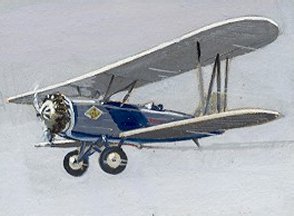 In
1927, mail planes made scheduled runs to Salt Lake City. They were two-seater,
open cockpit military planes -- helmets, goggles, the whole bit. Railroads
and landmarks were their main navigational instruments. This particular
route was flown by a pilot, named Maurey Graham, a retired Army ace. I
still have some notes that were passed back and forth as they flew over
the route. Maurey mentioned points of interest, pointed out herds of wild
horses, and passed the time by this silent communication. There was quite
a bit of publicity by the press concerning this trip. Not many people of
Mr. Burroughs' fame were paying passengers on mail flights. About a month
later, Maurey Graham flew into a snowstorm and crashed in the rugged mountains
of Utah, about halfway to salt Lake City. It was weeks before they found
his body.
In
1927, mail planes made scheduled runs to Salt Lake City. They were two-seater,
open cockpit military planes -- helmets, goggles, the whole bit. Railroads
and landmarks were their main navigational instruments. This particular
route was flown by a pilot, named Maurey Graham, a retired Army ace. I
still have some notes that were passed back and forth as they flew over
the route. Maurey mentioned points of interest, pointed out herds of wild
horses, and passed the time by this silent communication. There was quite
a bit of publicity by the press concerning this trip. Not many people of
Mr. Burroughs' fame were paying passengers on mail flights. About a month
later, Maurey Graham flew into a snowstorm and crashed in the rugged mountains
of Utah, about halfway to salt Lake City. It was weeks before they found
his body.
When Mr. Burroughs arrived in Utah, he was unhappy. The whole setup
was unsatisfactory. Joan had known it, but since she had made the commitment,
she felt she should go through with it. The company was unable to pay the
actors' salaries and was several weeks in arrears.
Mr. Burroughs blew the whistle and Actors' Equity saw to it they were
soon closed down. Joan and the rest of the cast went home sadder but much
wiser. They never were able to collect their pay, but the producers were
prohibited from opening another show.
Soon Joan and I were serious again. She was as sweet and lovely as ever
and soon I popped the question. "Darling, will you marry me?"
"I thought you would never ask," she replied. We sealed it with the
longest kiss and embrace on record. We were parked in the driveway of the
Burroughs' home in the old Model-T under a full moon. It was the happiest
moment of my life. We were so much in love. Soon I asked Mr. Burroughs
for his permission to wed Joan. He said, "It's a great idea. You have my
blessing."
I had been having success in my career by now and felt I could take
good care of Joan. Mr. Burroughs adored her and was anxious that I make
good.
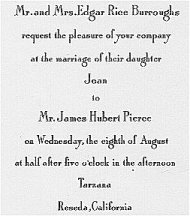 The
wedding was set for my birthday, 8-8-28. (Eight was always my lucky number.)
An engagement party followed soon, and the newspapers carried a lot of
publicity about it. The human interest angle of Mr. Burroughs' daughter
marrying a movie Tarzan made it a top feature story nationally, and throughout
the world.
The
wedding was set for my birthday, 8-8-28. (Eight was always my lucky number.)
An engagement party followed soon, and the newspapers carried a lot of
publicity about it. The human interest angle of Mr. Burroughs' daughter
marrying a movie Tarzan made it a top feature story nationally, and throughout
the world.
The wedding was an outdoor, garden-type ceremony at the ranch with a
tremendous crowd. It was one of the hottest days of the summer, which in
the San Fernando Valley is really saying something. Since I was raised
a Baptist and the Burroughs had no religious affiliations, a Baptist minister,
named Pratt, presided. Later there was a real "Prat fall;" he was unfrocked.
A huge catering company, the Elite Catering Service, supervised what
was probably the only dry wedding in the history of Hollywood.
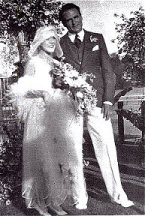 A
16mm film was shot of the entire proceedings and it is something to see
today. My grandchildren are mad about it as I have a print of the film.
Especially of note are all the limousines and cars no longer made, such
as the Marmon, Packard, Auburn, and Cord, the first with front-wheel drive.
(Mr. Burroughs owned one.) By that time, I had gotten rid of my trusty
little Model-T "Whoopee," and bought a snappy Nash roadster. It was a twin-ignition
car, the first and last of its kind.
A
16mm film was shot of the entire proceedings and it is something to see
today. My grandchildren are mad about it as I have a print of the film.
Especially of note are all the limousines and cars no longer made, such
as the Marmon, Packard, Auburn, and Cord, the first with front-wheel drive.
(Mr. Burroughs owned one.) By that time, I had gotten rid of my trusty
little Model-T "Whoopee," and bought a snappy Nash roadster. It was a twin-ignition
car, the first and last of its kind.
As soon as we set the date, we started looking for a house. We decided
on one in Van Nuys, which later became Studio City. It was a new two-bedroom
home on Dixie Canyon near Ventura Boulevard. We had it furnished in Spanish
motif and it was all ready to move into by the day of our wedding. The
house cost $4,500, and we only had to put $1,500 down which Mr. Burroughs
gave us for a wedding present.
Mr. and Mrs. Burroughs gave us a lot of things to get us started, including
kitchen appliances. Friends gave us basic things, such as dishes, silverware,
and linens. "The wedding gifts almost filled the huge ranch house living
room, and many of them are still in use today. The rest of the furniture
was purchased on the installment plan.
After the reception, we left for our new home and our wedding night.
We were in a state of ecstasy, almost overpowered with rapturous delight.
Our contemplation of things to come seemed almost sacred and divine. If
there were ever two mortal beings completely happy, we were that couple.
No two people could have possibly loved each other more. This love never
ended, even though there were many things ahead that could have destroyed
it.
IN a few days, when we had returned to earth, we set out on our honeymoon,
heading for Indiana first to visit my family. It took us about ten days.
The radiator boiled constantly, so we had to carry extra water. Blowouts
forced us to buy new tires. WE had to hitch-hike once to a nearby town
for assistance.
At St. Louis we phoned my family that we would be in by late evening.
My dad and mother were so anxious to see us that they drove out several
miles to meet us. That was quite a joyous meeting at the side of an Indiana
country road. The welcome home continued with a tremendous dinner and talk
far into the night.
Not long after we climbed into the old-fashioned four-poster bed, the
slats used instead of springs gave way and we collapsed onto the floor.
It made a terrific racket and instantly my father was pounding on the door;
asking "What the sam hill is going on in there?" After we put robes on
and let them in to assess the situation, we all had hysterics. It took
some time to make the necessary repairs, and I said to my dad, "You played
a dirty trick on us; a rigged deal!" The event became a standing joke.
We stayed a week, visited my relatives in nearby towns and made a trip
to Indiana University and Spencer where I went to high school. I was happy
and proud to show off my beautiful bride to my old friends.
We also went to Freedom to show Joan where I was born and to see
the almost forgotten little town by-passed by the new state highway. Seven
years after I had shaken off the dust of this quaint village in the hills
of Indiana, I returned with my lovely bride. It seemed shrunken and shriveled
up.
We pulled up tot he grocery store where I had worked as a kid for a
dime a day. The building hadn't been painted or improved in any way. On
the front of it was a covered porch and the town pump. There was a deep
well, drilled through limestone, and the water was almost ice cold. It
was the same pump, with a rusty tin cup hung on a wire fastened to its
belly.
It brought back memories of my mother insisting I carry a folding cup
in my blue jeans and admonishing me never to drink from that filthy communal
cup. I tried to follow her instructions, but once in a while I cheated
because it took too much time to unfold the cup and delay the marble game
that was always going on in front of the store. Horseshoes was a popular
pastime for the younger men and older kids. Darkness was the only thing
that closed down these pursuits when weather permitted.
The scene had not changed much, except for the games. No one was shooting
marbles or pitching horseshoes. The same group of about ten men, ages forty
to eighty, were sitting in the same places, dressed in bib overalls and
straw hats. They were chewing, whittling, and spitting as always. There
were no kids around. Shavings were scattered around their feet from the
razor-sharp "frog sticker," as their knives were known. About every five
minutes, when one chose to speak, he would draw a bead on the edge of the
porch and let fly a stream of the amber-colored tobacco juice. Any one
of them could hit a dime twenty feet away.
When I pulled up, not a word was spoken. No one stirred. After two or
three minutes, one of them spat a stream, almost hitting the car, and asked,
"How's things in Californy?" I answered, "Just great, just great!" That
was it. I spoke to each one, shook his hand, and called his name or nickname.
Nicknames are a common thing in that part of the country, such as liver
foot, mossback, squirrely, fat, slim, or battler. These names were tied
to some event in their childhood but stuck throughout their lives. Seldom
was anyone called by his given name
My moniker was "Hikey Dike." At age four, I was taken to a wagon show
in the county seat that featured among other weird things, a wild man called
"Hikey Dike," supposedly shipped to this country form the wilds of Borneo.
He fascinated me, and for weeks I ran around town yelling that I was "Hikey
Dike." Perhaps it was a portent of later performances as Tarzan, Thun the
Lion Man, and other characters.
Finally, I introduced Joan, pointing to the car where we was sitting
-- bug-eyed, I might add. They all spat first and mumbled, "Howdy, ma'am."
It now struck me forcefully why my mother had said, "As soon as you can,
you must run for your life from this pathetic old village that the world
has passed by," else I wind up chewing, whittling, and spitting.
I showed Joan the site where I as born (the house had since burned down),
my first school, and my grandfather's old home, which was still stately
and beautiful in an outdated way. The stained-glass windows and ornamental
veranda posts were somewhat faded, but reflected the beauty that was theirs
in days gone by. It was built just after the Civil War.
My grandfather was still alive and anxiously awaiting our arrival. He
had married again several years after my grandmother Julia passed on. His
second wife was an aristocratic southern lady from Lynchburg, Virginia,
educated, and well-off financially. Her first husband had been a successful
doctor and a member of a prosperous land-owning family.
They had met at a church convention. Both were lonely and needed companionship.
All the relatives and townspeople shied away from her at first because
she was not exactly the Freedom-type. Her southern accent and fancy clothes
set her apart from the backwoodsy Hoosiers. But she was a pretty good diplomat
and psychologist, and finally won complete acceptance.
They were both thrilled to see us, and we spent several days with them.
Joan was fascinated by my grandfather's stories of pioneer days and especially
the Civil War. The family had heard the stories too many times and tired
to slow Perry C. down, thinking he would bore Joan. Not so, and with good
reason. Her grandfather also had been a major in the war and had a great
record for bravery. Furthermore, Joan's grandmother Burroughs had done
something no other woman did, as far as we know. She disguised herself
as a man and went to war right alongside her husband. Later she wrote a
fascinating book about it, Memoirs
of a War Bride.
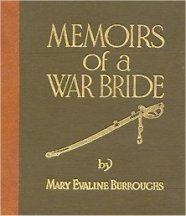
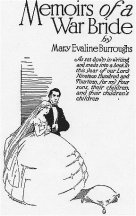
My grandfather's parting words to us were, "No matter what happens along
your life's way, be sure you keep sparkin' and all will turn out all right."
"Sparking" was an old Hoosier expression for keeping the love batteries
charged, and we certainly took his advice.
He lived to be ninety-two, and was knocked down by pneumonia. His widow,
Hattie, who was several years young, moved to Indianapolis to live the
rest of her life with a niece who was the widow of a prosperous building
contractor. Our family, including Joan and me, kept in contact with her
and visited her as often as possible. She took wonderful care of Perry
Commodore McIntosh while they were together.
The ever-present privy was still there with its half moon and crescent
carved in the door. It was a "four-holer" over a lime-covered pit. Lilac
bushes still covered this retreat to reality and gave off a fragrance that
served to clear the air. I still buy lilac-scented air freshener today
in memory of those blessed lilac bushes in Freedom, Indiana.
My father bought the old McIntosh homestead after my grandfather passed
away, and kept it rented to selected tenants. It was kept up as well as
could be expected, still with its early American aura. Many beautiful memories
flooded my consciousness as Joan and I gazed on what seemed like a shrine
to me. Little did I know when I was climbing those orchard trees as a kid,
gathering cherries, apples, and peaches, that fictional tree-climbing would
later shape my destiny.
After making the round of childhood locations, we drove to Chicago and
Coldwater, Michigan, to visit Joan's relatives. Everyone was exceptionally
hospitable and gracious, though it took some time to visit her many aunts
and uncles. Mr. Burroughs had four brothers and Mrs. Burroughs had four
sisters. All had large families and there were cousins all over the place.
Her grandmother lived on a farm in Coldwater, Michigan with one of their
daughters, Jessie. Here we rested up. There was a good golf course nearby
and a lake for fishing and swimming. After a much needed change of pace,
we set out for California to settle down for all of life's challenges.
From Chicago to Van Nuys was a long haul in those days. If we made three
hundred miles in one day, it was something. At least the westbound trip
was more pleasant because the weather had cooled down. Also, I had made
it a point to buy a new set of tires with extra ply, heavy-duty treads.
This trip also gave us an insight into each other's dispositions. We
were under trying circumstances, in many cases, and had a chance to see
how we reacted to minor crises. There were few times when we lost our composure,
and not once did we flare up at each other. We were sure now that we were
compatible under almost any situation that might arise.
To be back in our old San Fernando Valley and our new home was excitement
all over again. Wedding bells seemed to ring out once more in a joyous
welcome. Now our lifetime hopes an d plans were launched. The countdown
was all over. It was now -- "all stations go." We were embarking on the
great adventure -- two people so much in love ready to storm the gates
of Hollywood. This path is perhaps the rockiest and most precipitous in
all the world. Covered wagon caravans crossing the great plains, fighting
Indians all the way, was a Strauss waltz compared to the battles to conquer
Hollywood.
Many pounded and screamed at the gates, only to be told to get lost,
though some of those poor souls had what it took as much as the ones that
made it. On the other hand, some people were swept into fame and
glamour, seemingly by luck, in being at the right place at the right time.
My reasonable success had given me a feeling that I possibly would reach
the top in the not too distant future. Interviews started coming up, and
soon I was working a week here and a week there, and occasionally, a good
part came along that ran through the entire filming. Most of the pictures
I did at this time were Poverty Row Westerns and serials, but they were
good meal tickets. As long as I was making these potboilers, I would be
ready to handle any good parts that might come up. ONe had to keep busy
around Hollywood or soon be forgotten.
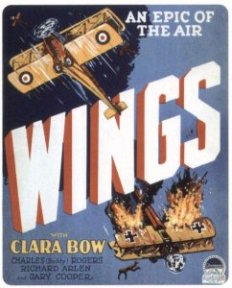
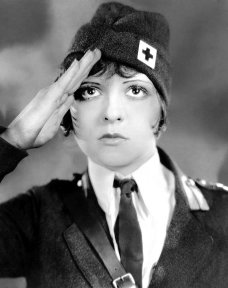
I had a good part in Ladies
of the Mob with Clara Bow, whom I had met in Wings.
After getting fitted for uniforms, I reluctantly turned down a part in
Wings
to do Tarzan and the Golden Lion. They later told me I might have
done the part played by Gary Cooper, which gave him a great start. They
tried to get me again after the publicity broke on the Tarzan test and
before I signed the contract with FBO. A scout from Paramount saw the test
and at the same time they were casting for Wings. After the Tarzan
picture was finished, Wings was still filming, and director Billy
Wellman gave me a nice part in a sequence with Clara Bow.
Wellman was one of the most exciting and brilliant men I met in Hollywood,
though often jokingly called "Wild Bill" because of a steel plate in his
head from a wartime plane crash. He would yell and scream one minute and
be as gentle as a lamb the next. He was totally loyal to his friends, which
was proved to me as I worked in many of his pictures in good bit parts
and screen credit roles.
Equally amusing in an introverted way was King Vidor, who arrived from
Texas with an old jalopy and few prospects. During those early days, he
sometimes came to my bungalow with a mutual friend, actor-writer George
Meredith. King was a deep thinker with little sense of humor, but it was
interesting to watch him with a magnifying glass picking up bugs out of
the shrubbery and scrutinizing them with great interest.
The strangest director of them all, in my opinion, was Cecil B. DeMille.
I worked on several of his pictures as a spear carrier or half-dressed
muscleman. Central Casting would put out the call for extras and send over
two or three times as many as needed. They would strip to the waist, line
up, and wait for his majesty to look them over. When word came that he
had arrived, everyone would throw out his chest, suck in his gut, and await
his arrival with his retinue of flunkies who carried his toilet paper,
cushion, and megaphone. When they spoke, it was like a Greek chorus trying
to sing a one-note samba, "Yes, Mr. DeMille." He would inspect each man
like a general reviewing troops and point to the ones he wanted. When he
rejected some, there were loud exhalings and it appeared a lot of men were
suddenly pregnant. Those chosen would hold their breath determinedly
until DeMille walked away. Any time one of those selected came near DeMille
while working, up would go the gut and out the chest. Luckily, I was in
great shape, and was never rejected on a DeMille "beefcake" interview.
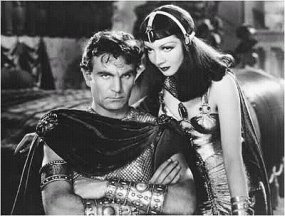
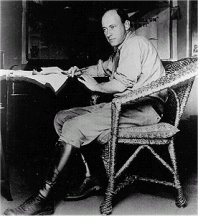
During the filming of Cleopatra,
there was one day when we were shooting retake after retake, and DeMille
was frequently screaming. The crowd, or cattle, as they were sometimes
referred to, grew restless as 2 p.m. approached and no lunch break was
in sight. Back in the crowd, an extra started talking and moving around
while DeMille was yelling directions. He spotted the fellow, stopped everything,
and asked over the megaphone, "What is so damn important that you
can't pay attention to what I have to say? What have you to say that is
so much more important than this scene I am desperately trying to get?"
The fellow tried to duck out of sight, but DeMille said, "I see you and
I want to know what the hell you want to talk about while I am directing."
There was a moment's pause, and the fellow said, "OK, if you insist. I
was just saying I wonder when in the hell that old SOB is going to call
lunch."
There was an uproar of laughter and DeMille broke for lunch. It was the
only time I ever saw him smile.
Working with film comedians provided plenty of smiles, sometimes bordering
on lunacy. For example, appearing with the Marx Brothers in Horse Feathers
was like no other experience I ever had as an actor. They were completely
wild and unpredictable, writing the script mostly as they went along. oNce
you were hired to work for them, it was a sure thing that you would have
a long run. What might be two or three days in any other picture would
run into weeks with them. If they saw a day's work in the rushes and weren't
satisfied, they would junk it and do it over again. They had the set in
an uproarmost of the time just clowning around with the camera going. When
a scene started, the director was not sure what they might ad lib. The
script girl was always in a tizzy trying to keep up with them.
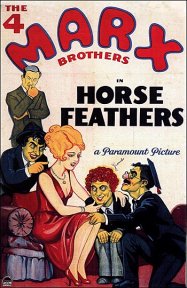
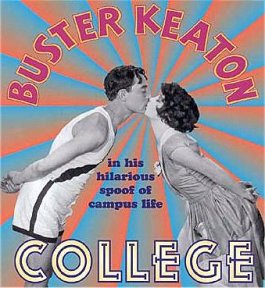
Buster Keaton worked somewhat like the Marx Brothers. I did a picture
with him, College,
that lasted ten weeks, and I was never seen on the screen I played the
track coach with a nice salary of $400 per week. In those days, that was
a lot of money.
I told a number of my good friends about the preview when it was scheduled
to be shown because I was very proud of the part I had played. We kept
waiting and waiting for the sequence I was in to come on the screen. Whispers
were coming from Joan. "When the Hell are you coming on?" All I could say
was, "Shish-shish!"
At long last, "THE END" faded out the picture. The lights came on and
I wanted to slide under the seats and would if I could have made it. I
was shocked -- not in one lousy scene.
The studio had sent invitations to all who had worked in the picture.
I was not aware that the sequence I was in hit the cutting room floor because
the picture wound up with much too much footage. I had to be in the part
they whacked out. Even though it was terribly embarrassing for me to face
my friends at the time, we did have many belly-laughs about it over the
years.
I got to know Buster well during the making of the film. He expressed
regret that I was cut out of the picture. He was a sports nut and especially
daffy over baseball. Anytime there was a break in the shooting and at noon
hour, he would gather those who could play baseball fairly well -- there
were a lot of them in the picture -- and go a short way to a vacant lot
near the studio and play baseball like mad. He was very good at it and
could play any position on the team. I still have an autographed bat he
gave me after the picture ended I was a pretty good pitcher, having made
my numeral in 1916 on the freshman team of Indiana University.
Hollywood is set up on levels of how important one is in the business.
The stars at the top, and it works down through the feature players,
high-powered character people, bit players, and lastly, the lowly extra
-- who are the peons of the business and are usually addressed as "HEY
YOU."
On locations or at the studio dining rooms, these groups are segregated
accordingly: private rooms for the big shots, limousines for the stars,
producers, and directors. Extras and bit players are not allowed to drive
through the studio gates. All the big shots drove right through, with a
gateman giving them a snappy salute. Buses were used for the mobs of extras.
On locations, the studio catering service set up linen-covered tables
with all the silverware of a hotel or a fancy restaurant. The directors,
business managers, writers, head cameramen -- the big brass, as we called
them in the Army -- got the deluxe treatment. It dwindled down step by
step to the buck privates.
Those without "brass" lined up chowline-style for food -- mostly box
lunches, but sometimes they did have a caterer who served hot food. Some
of the better character actors and part players had tables set for them;
separate from the stars' tables, however.
Location shooting itself sometimes brought out the worst in people.
On one location in northern Arizona on a Western in which I played the
villain, the star and the director were battling over the script treatment
and the leading lady, especially the latter. The leading lady was the director's
current flame, but the star was beginning to ignite a few sparks, too.
The director was giving her all the best camera angles and eye-blinking
close-ups, which annoyed the star no end.
After work each day, the cast and crew would drive out to a roadhouse
that sold booze, despite prohibition. On one particular evening, the star
had a bitter argument with the director and hit the sauce a little harder
than usual. On the way home he decided to fix the director by throwing
his false teeth out the car window at eighty miles an hour. Next morning,
after the director learned about this and recovered from a near stroke,
he ordered an all-out search for the choppers. The teeth were found after
a half-day's loss of shooting.
Occasionally, I met an old acquaintance who had made it to the top.
A lucky break had brought him attention and soon he had a big agent, a
contract, and before long, a star. That's something that everybody hoped
for in Hollywood -- to skyrocket to fame like a Fourth of July skyrocket.
Most were lucky if they could pass as sparklers. If it did happen, their
egos exploded and they became aloof from old friends still struggling.
They developed the well-known studio stare. If you happened to see one
or pass him on the lot or on the set, he would look straight ahead even
though you knew or felt that he saw you and you were ready to say hello
or chat. But you could feel the frost and usually backed off. If you happened
to speak, ignoring his new status as royalty, he would just give you a
quick stare and say, "Oh, hello," as though he did not faintly remember
you. The "Oh, hello" bit was part of the character change that hit these
people when they reached the higher rungs on the ladder.
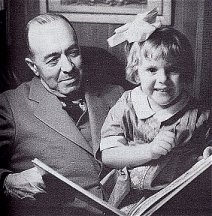 During
all my scrambling to climb that ladder, we were blessed with our daughter,
Joanne, on Christmas Eve, 1929 -- a blonde, blue-eyed angel. Now I would
have to scrounge a little harder for additional income. Jobs seemed harder
to get and the prolonged idleness made me restless.
During
all my scrambling to climb that ladder, we were blessed with our daughter,
Joanne, on Christmas Eve, 1929 -- a blonde, blue-eyed angel. Now I would
have to scrounge a little harder for additional income. Jobs seemed harder
to get and the prolonged idleness made me restless.
During these hard time, my ego faded. I joined the Christian Science
Church, hoping to get my head on straight. There was a Christian Science
society just forming in Studio City. It was not a church yet, but was trying
to build a congregation to qualify for acceptance by the mother church
in Boston.
We rented a hall over a building, bought old seats from a defunct
theater, and built the necessary compartments and desks for the church
services. I was treasurer of the group and also served as an usher. The
neighborhood was ready because many Christian Scientists lived nearby and
wanted a convenient church.
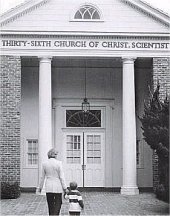 After a year, the
society passed all examinations and was designated as a regular Christian
Science Church. My children were Sunday School members and a great deal
of good resulted for our family. Joan did not formally join but did a lot
of hard work for the organizations and attended all the meetings with me.
After a year, the
society passed all examinations and was designated as a regular Christian
Science Church. My children were Sunday School members and a great deal
of good resulted for our family. Joan did not formally join but did a lot
of hard work for the organizations and attended all the meetings with me.
I still apply these teachings to my life today, and they have carried
me over many a rough spot. The church that we organized as a society eventually
built a new building and is one of the most impressive churches in the
San Fernando Valley today.
I thought a long time about doing extra work because I knew it might
make getting good parts more difficult -- the class barrier again, but
a Christian Science attitude gave me the courage to do it, even though
extra work was supposed to be the kiss of death for big parts. I joined
the Screen Extra's Guild and vowed to take any sort of work I could get.
Central Casting handled all extras, hundreds of them. We called Central
many times each day, hoping to land a job. This made me a slave to the
telephone. Should Central happen to call direct, one had better be home
-- unlike the postman, they wouldn't ring twice.
Being an extra, tall and typed as a Tarzan, was not an advantage. There
were not too many jobs for my type; policemen mostly. I must have had a
hundred New York cops in my day. Meanwhile, I was more or less dropped
form the bits and parts. Directors were fearful of having an actor with
a good part in one picture being seen as an extra in another.
Occasionally, I would get a job from an old friend that would pay up
to $75 to $100 a day. Extras were paid only $7.50, $10 and $12.50, depending
upon how close they were to the camera. Foreground atmosphere, next to
the stars, where one had to emote a little with reactions but no dialogue,
paid $12.50. If one was spotted to say word or two, like "He went
thataway," his check was adjusted to $25. There was a lot of nodding and
shaking of the head to avoid the extra expense of dialogue. Silent bits
once in a while would rate extra pay if they were important and played
directly with a star. Rain scenes, wind machines, and fighting also boosted
the price. I had a lot of these bits and the income stabilized, but the
total was about the same as when I had a few big parts -- lower pay, but
more daily work.
In Richard Dix's Knocking Them Over
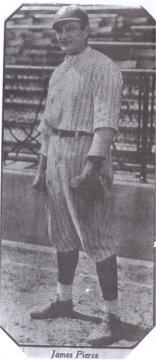 There was a continuing manipulation
of the hundreds of extras. The Central Casting Agency was maintained by
the studios. It was not too difficult to get on the registry. A letter
from a star, producer, director, or casting office would do it.
There was a continuing manipulation
of the hundreds of extras. The Central Casting Agency was maintained by
the studios. It was not too difficult to get on the registry. A letter
from a star, producer, director, or casting office would do it.
Pay checks were day checks mostly, but sometimes one might be put on
a weekly check at a lower per diem if he ran a long time in a mob scene
or special business. The checks ran from $3.50 a day in the 1920s and 1930s
to a top of $25.00 for singers and cowboys and specialists.
The best racket in the extra business was the full-dress people. They
had to have their own tuxedos and "tails." They received all the dress
calls because an ordinary extra might look sleazy in a rented outfit. Dress
people also were called for street set jobs if well-dressed people were
required. They were special people and had good wardrobes for all occasions.
However, the run-of-the-mill extra only received calls for run-of-the-mill
clothes or laborers or mobs -- sometimes called "cattle calls."
People in business suits or work clothes received $12.50 per day. Policemen
and uniformed people also were on the $12.50 scale. The studio furnished
the costumes through their studio wardrobe or sent the extra to Western
Costume Company for fittings. The costume would be sent to the studio to
be checked out by the actor when he arrived for work.
I had so many calls for cops that I bought my own Los Angeles and New
York uniforms. I got no extra allowance for them but it saved a lot of
time, not having to run to Western Costume every time I had a call. The
studios knew I had my own uniforms and I received many rush calls that
I would not have gotten otherwise.
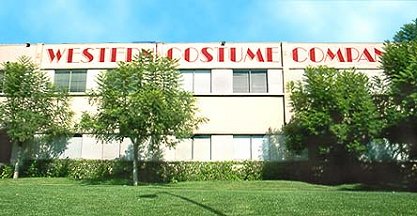
The Western Costume building is several stories high and contains every
kind of costume from cavemen to army uniforms and costumes of every historical
period known to man. Studios had fabulous wardrobes also, but not on the
scale of Western. Their clothes were also custom made for stars for individual
pictures. The clothes were then saved for future use. I recall being engaged
for a fat man type bit. I was padded up in the right places and given an
outfit formerly used by Sidney Greenstreet. When the job was finished,
I traded one of my own shirts for the Greenstreet shirt and took it home
for a souvenir. I still have it, forty-five years later.
Western maintained researchers, historical specialists, technical advisors,
and the best tailors obtainable. If what they needed was not in stock,
they set about making it. If I had been paid for all the time I spent in
Western Costume Company, I would have made almost as much money as I made
wearing the outfits. We were paid nothing for fittings.
Extras sometimes were called on to bring along on the call, extra hats
and coats for plaster dummies that were to sit next to us in crowd scenes
in stadiums, bleachers, etc. Far back from the cameras, every other spectator
would be a dummy. These background live characters received $7.50 and lunch
-- the dummies zero. Thus several hundred $7.50s per dummy was a big savings
on the budget. Almost 75% of all extras were legacies of the studio officials,
friends and relatives of some influential person connected with the studio.
But there were some types so unusual that they could not be filled from
the preferred people's list -- musclemen, swimmers, athletes, singers,
horsemen, skaters, and boxers. The special and unusual types got more money
when they worked but didn't work as often.
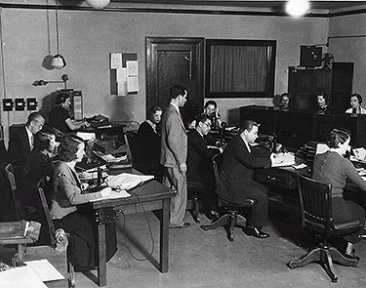
Central Casting Office 1929
When a call came into Central Casting from any studio, the preferred
list was checked first. If there was such a mob needed that the preferred
list could not fill, then it was hit or miss by anyone to fill the call.
Extras spent most of their idle time phoning in their names, ,hoping that
at the exact time their name was called there would be a set to fill in.
The Central Casting operators after a time began to know almost everyone
by name. If they needed a person and recognized the name, they would say,
"Hold on a moment." Those became the sweetest words in Hollywood because
they meant food on the table. Then the Central Casting director that asked
for you to hold on would say, "Working tomorrow at MGM at 8:00, weather
permitting -- dressed as a business man," or whatever the job called for.
"Weather permitting" meant it was an outdoor set, but "rain or shine"
meant it was an inside set. Then for a few hours, the extra was released
from the phone that held him prisoner. If he was not home calling in, he
was sitting around waiting for a call. From 3 p.m. until 7 or 8 p.m., an
extra did not dare go to the bathroom unless he had a long phone cord.
Preferred lists were exchanged among the studios so that the same people
would not always be seen on their "home lots" where their sponsors worked.
I was never on a preferred list, but I became well-known as a large athletic
type. As I related in a slightly fictionalized article for King Features
Syndicate in 1937, there was also a period when I got lots of work with
the aid of spirit gum. My phony Arab beard in Phantom
of the Desert irritated me so much that my "acting" impressed the
director, whose recommendation brought me other whiskery roles.
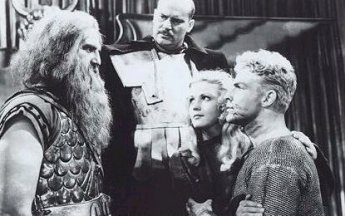 The most famous
of these was King Thun, ruler of a mythical kingdom in the original Flash
Gordon serial. It was a sustaining role as a lion man. It took
the makeup man two hours every morning to get this lion-effect on my face
and head. I also wore a warrior costume as King Thune. Buster Crabbe, who
played flash, is another former Tarzan.
The most famous
of these was King Thun, ruler of a mythical kingdom in the original Flash
Gordon serial. It was a sustaining role as a lion man. It took
the makeup man two hours every morning to get this lion-effect on my face
and head. I also wore a warrior costume as King Thune. Buster Crabbe, who
played flash, is another former Tarzan.
There was a lot of payola involved -- kick-backs of money. There was
pretty solid information that there were kick-backs in Central Casting
and to studio casting directors from agents that had high-salaried actors
and actresses in their stables. Through an assistant director that I knew
rather well from previous pictures, I was recommended for a good part in
a major picture that ran several weeks at $350 a week. Every pay day, this
assistant director would put the bite on me for a loan. He always had a
hard luck story about a bad week at the race track, family illness, or
cash flow problems, and promised he would pay it back soon, It turned out
that he was making almost as much as I was off the picture. When it was
finished, there was no repayment.
Weeks later, he hit me up for another loan and assured me I was a cinch
for an even better job in an upcoming picture. He was close to a star actress
that I had worked with before and liked my work and wanted me in her picture
with more money and a larger part. I asked him if he could pay me the money
he owed me and he said not yet, but soon. He hinted that I sort of owed
him for the work that he was making possible. He said he would have the
casting director call me for an appointment to arrange the deal. When the
call came, I told the casting director I was tied up on another job. I
never heard form the assistant director again, but I did work for the studio
and this star later.
A minor player like me didn't rate a stand-in and had to do all the
mechanics of the scene with the stand-in before the stars appeared. It
took hours and sometimes days to work out the details before actually shooting
the scene. When the stars appeared, the scene was run through by the stand-ins
so they could see how it worked. Then there were rehearsals by the stars
before the camera turned for a take. On a big production with super-stars,
it seemed to take forever to get a scene; not so in the quickies, where
we shot a hundred scenes a day sometimes. We would, in effect, photograph
the rehearsals.
If there were fluffs by the stars, it was a joke but a bit man didn't
dare fluff his line. It was nerve-racking to do a bit with big stars for
fear of "going up" in the dialogue. I recall one scene in a hotel lobby.
The bit actor was to rush in and cry, "Who fired that pistol shot?" After
a long string of dialogue, he rushed in and yelled, "Who shired that fistol
pot?" There was some mirth over it, but on the second try he couldn't open
his mouth. Again they tried and he said "fistol pot" again. The poor fellow
was fired, and they had to delay the shooting while they found another
actor.
I had one embarrassing moment of this kind when, as a prison guard,
I was called to say, "All visitors out" in a prison visiting room. I yelled,
"All prisoners out." It came at the end of a long speech by Lewis Stone
as the warden, and he was unhappy to have to do it all over again. The
next time he blew a line and things got a little tense, but I delivered
my line correctly.
 My most painful
experience with small roles came in a barroom fight with a big star. After
long rehearsals , his stand-in and double being at fault, he came on for
the actual shooting. All was going as rehearsed until he uncorked a right
cross that almost took my head off. I staggered backward and tumbled through
the swinging doors into the street. I was embarrassed, stunned and angry.
There were loud guffaws from the cast, crew and especially the star. The
scene was ruined and the director ordered a retake after the mirth subsided.
He asked the star to take it easy, and we started again.
My most painful
experience with small roles came in a barroom fight with a big star. After
long rehearsals , his stand-in and double being at fault, he came on for
the actual shooting. All was going as rehearsed until he uncorked a right
cross that almost took my head off. I staggered backward and tumbled through
the swinging doors into the street. I was embarrassed, stunned and angry.
There were loud guffaws from the cast, crew and especially the star. The
scene was ruined and the director ordered a retake after the mirth subsided.
He asked the star to take it easy, and we started again.
My jaw felt broken and I was boiling with rage. Before I could get rough
again, I sunk a right into his belly. He exploded wind like a harpooned
whale and his eyes were popping out like a surprised toad in a hailstorm.
Then came a moment of silence as his yes men worked him over to see how
badly he was hurt. No real harm had been done, except to his ego. I dug
in my pocket for my salary check and took it to the assistant director
to be signed off. I quit, as the star yelled, "You still think you are
Tarzan, eh?"
The assistant wanted me to hang around and patch things up, but the
big shot kept yelling, "Get him off the set and I'll see that he never
works at this studio again." My jaw healed without complications, though
I felt like suing the studio. Anyone who did that was through in Hollywood;
however, it would have been hard to prove it was not an accident. The studio
did not hold the incident against me and I worked in many more pictures
there.
One consolation in life in Hollywood was that there was almost always
a party thrown by the director after a picture was completed. One I attended
was at the home of a Warner Bros. director. It featured a collapsing outhouse
built by studio grips and carpenters. Bathroom doors in the main house
had signs saying, "Out of Order." When anyone went to the backyard privy,
the host would push a button, the whole thing would fall down, and an arc
light would illuminate the victim's maneuvering to get out of sight.
One fellow on whom the joke was played later in the evening smuggled
a case of Jello into the house and filled all the bathtubs, sinks, and
toilets with the Jello powder and turned on the water until it was jelled.
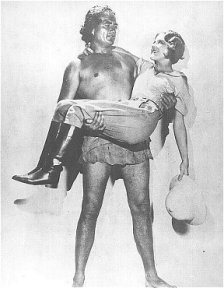 I
managed to keep the wolf from the door, but just barely, until 1932 when
a radio producer sold Mr. Burroughs (or perhaps vice versa) on a Tarzan
radio serial. American Gold Seal Productions then sold the idea to Signal
Oil and we took off -- me as Tarzan, and Joan as Jane.
I
managed to keep the wolf from the door, but just barely, until 1932 when
a radio producer sold Mr. Burroughs (or perhaps vice versa) on a Tarzan
radio serial. American Gold Seal Productions then sold the idea to Signal
Oil and we took off -- me as Tarzan, and Joan as Jane.
Our show was given a big publicity buildup similar to a major studio
preview, with a premiere at the Pantages Theater. Joan came on stage and
elaborated on her life-long acquaintance with the Tarzan character and
a few sidelights about what Mr. Burroughs was like as a father and family
man. I ad-libbed a speech because I forgot what I had rehearsed, Johnny
Weissmuller also cavorted on stage and told of his Tarzan experiences.
Several episodes of the show were played over the sound system. The show
got good press and a huge success was predicted.
The Tarzan show featured many newcomers. There was Hanley Stafford,
who became Baby Snooks' (Fanny Brice) father for years; Gale Gordon with
Lucille Ball; Cy Kendall, who became a great character actor in the movies;
and Jeanette Nolan and John McIntire, who later married and enjoyed considerable
success in radio, TV, and movies. In a recent interview, Gordon recalled
that he began his career of yelling at people like Eve Arden and Lucille
Ball by performing the death screams of hapless natives on our show. These
actors were paid $5.00 per episodes. Joan and I worked on a royalty basis.
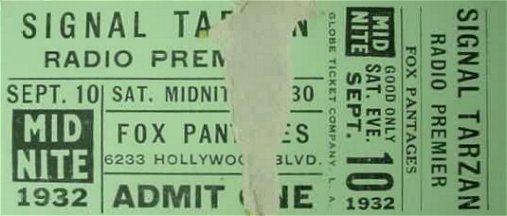
This Tarzan radio program was suddenly a smash hit. It was the first
"canned" program to hit the air waves. Everything in those days was live
and no one though we had a chance with this transcribed program on wax
discs. Soon after that, many others started recording their shows ahead
of time.
Signal Oil Co. not only promoted itself along the West Coast as the
gasoline with the power of Tarzan, but even organized a Signal Tarzan Club
offering jigsaw puzzles and other Tarzan premiums to children who talked
their parents into filling their tanks at Signal. More than 125,000 membership
cards were mailed out during the first year. By 1934, it was so successful
(415,000 members and growing) that Signal concluded reluctantly that the
clerical burden had become more than it could handle.
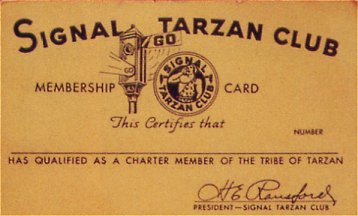
Our program played three times a week, thirty-nine episodes to a story,
for a total of 364 episodes. It was syndicated in every English-speaking
country in the world for about six years. Joan and I got a fat royalty
every time the program was played, so the panic was over for us at last.
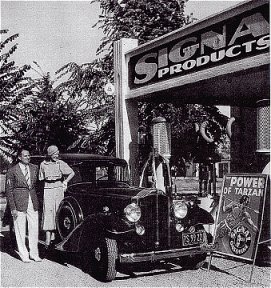 We
sold our little honeymoon cottage and rented a large house in Hollywood.
We had a couple take care of the house, do the cooking, and take care of
Baby Joanne. The man was supposed to be our chauffeur, but I always drove
and put him in the back seat. We bought a brand new 1933 Packard sedan,
which inflated our ego. I still have as a souvenir the canceled check for
$3,337, which was a whale of a lot of money in those days.
We
sold our little honeymoon cottage and rented a large house in Hollywood.
We had a couple take care of the house, do the cooking, and take care of
Baby Joanne. The man was supposed to be our chauffeur, but I always drove
and put him in the back seat. We bought a brand new 1933 Packard sedan,
which inflated our ego. I still have as a souvenir the canceled check for
$3,337, which was a whale of a lot of money in those days.
Finally, we had a little time off and took a vacation to Canada. We
shipped the car to Seattle on the Grace Line that used to ply the West
Coast for tourists and fright. On the boat, the purser immediately inquired
when our names showed up on his passenger list. He said he was a devoted
fan of the program and invited us to his quarters to hear it. During our
three or four nights on board, we felt honored to join him, and were treated
royally by the crew.
While touring Canada, we went to Lake Louise and Banff, buzzed around
with the Mounties, and took in the annual Calgary Stampede. When word got
out who we were, we were swamped with autograph seekers and invited to
appear on radio programs in Canada.
Toward the end of our contract, Joan became pregnant with Mike and the
producer wanted to replace her on the next series of episodes. He was afraid
that Joan would not have time to do justice to the job. I felt that we
could get ahead a few episodes and Joan wouldn't be out long. But they
had sold the show to several big sponsors and were afraid of trouble if
it were delayed.
They wanted me to continue with a new Jane, but I told them that Joan
was just as important to the program as I and resigned. Carlton Kadell
took over with another Jane but wasn't successful because the fans had
become acquainted with us and were disappointed when we left. (Tarzan later
returned to radio, in 1951-52, as a weekly half-hour show of complete stories.
Lamont Johnson, now a famous director starred.)
Now what? Of course the royalties would keep rolling in for a long time
because the program was still playing and we were getting fan mail from
Australia, many islands, Canada, and all places that spoke English. It
was successful wherever it played. In fact, a few stations have aired reruns
in recent years, and episodes are available on tape. Albums on tape and
cassettes are now being sold here and in foreign countries. Fan letters
are coming in again.
Meanwhile, my mother passed away. She was waiting for my father to come
home from work, and they were later to attend a church social. He found
her on the bed, partially dressed, and though she was taking a nap. He
began getting dressed for the occasion himself.
Finally, he called to her as it neared time to go. She did not respond
and he called again, then went to her side and shook her. When he discovered
she was lifeless, he called the doctor immediately, but it was too late.
It was diagnosed as a blood clot on the heart from a fragment of a blood
vessel that had broken from a varicose vein. She had been treated for this
condition for several years, but seemed in good health when my father left
for work that morning. I shall never forget the shock I received when WEstern
Union called and, without any warning, hit me with the news.
It took over a year for my dad to get himself together. He sold their
home and moved into an apartment . He was not very good at cooking, cleaning,
and household chores because my mother had waited on him hand and foot.
He was also quite lonely. By now he was mayor of Shelbyville, and was exposed
to a non-political campaign by the local widows. He was often invited to
their homes for a good home-cooked meal. They would even show up at his
apartment with all the fixings for a meal.
Finally, he succumbed to an especially attractive operator, and they
were married amid great fanfare. All was well for a while; but alas, then
came a crash. They were divorced.
About two years later, the pastor of the church and several of his ex-wife's
friends went to work on him to patch it all up. The pastor made him feel
guilty that he should ever have torn asunder what God had joined together.
Also, as mayor, he was conscious of public opinion and thought it might
be the best thing to do.
He was a successful mayor and could have gone on to higher political
offices. He was judge of the police court along with his other duties of
office. During visits, I attended several sessions and was proud of the
way he handled the cases. He was tough but fair, and handled pillars the
same way as prostitutes.
One case I saw involved a priest, hauled in for driving while under
the influence. He was picked up on a Saturday night. We were at home when
the chief of police called him to say that he had the priest in custody
and thought Dad should arrange to let him go so he could hold Mass the
next morning. Dad said he would have to wait like anyone else until court
convened at 9 a.m. Monday.
The phone almost jumped off the wall for hours as callers from his flock
beseeched Dad to let him go. At the hearing, Dad gave him a stiff fine,
suspended his license for six months, and put him on probation for an equal
length of time.
I also sat in on the case of a prostitute peddling her wares in a graveyard
at the edge of town. He gave her a heavy fine despite her sob story, and
told her if she ever came before him again he would throw the book at her.
Gamblers tried every way to open up, but he closed them down immediately.


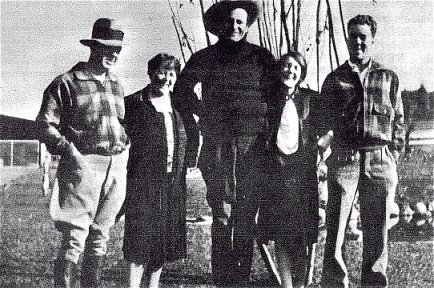
![]()
![]()
![]()
![]()

![]()